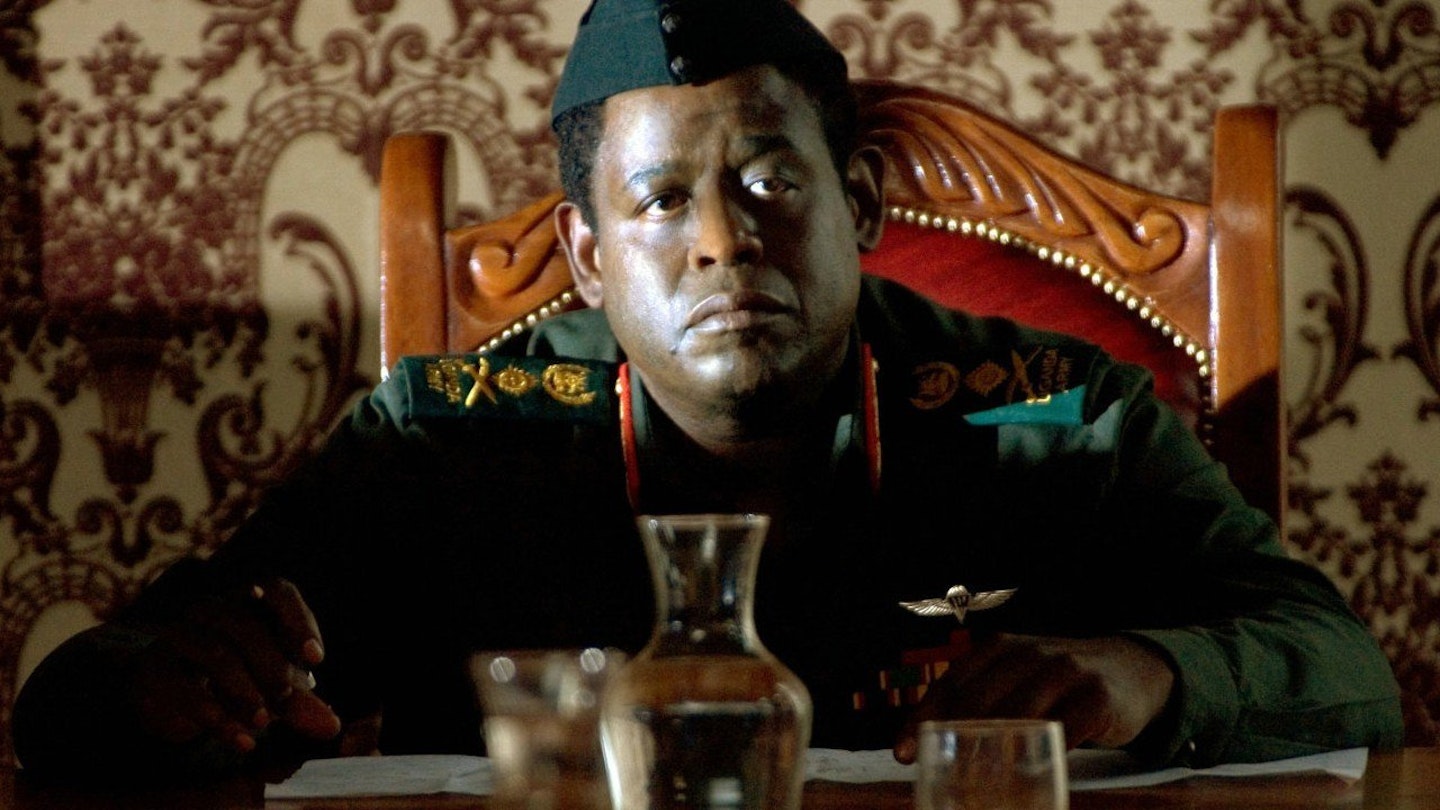“Political awareness can be raised as much by entertainment as rhetoric,” says director Ed Zwick of January’s other Africa-in-crisis movie, Blood Diamond. It’s a tenet that could equally be applied to this sometimes savagely violent examination of Uganda under Idi Amin (Forest Whitaker). Part Amin biopic, part political drama, part blistering thriller, Kevin Macdonald has taken a break from award-winning documentaries (One Day In September, Touching The Void) and instead created an unashamedly entertaining movie in his fiction debut, even if its final half-hour turns the screws on both Amin’s victims and the audience.
Based on the novel by Giles Foden, The Last King takes a fictional protagonist, Nicholas (James McAvoy), and slots him into an historical document of Amin’s regime, the young, Scottish doctor finding himself adopted, and manipulated, by the despot. It’s a movie of ambiguities on many levels, and can be tonally awkward at times. The third act is pure thriller as Nick tries to escape his increasingly desperate situation, and feels like a different film from the first hour, in which Macdonald’s documentary background is clearly evident. Such a flaw could, in less confident hands, prove fatal. But Macdonald covers the structural cracks by ensuring that the narrative pace never flags.
Indeed, it could be argued that the uneven structure is deliberate, underlining the film’s moral ambiguities. Macdonald presents us with a renowned monster — it’s estimated Amin had over 300,000 Ugandans killed before he was forced into exile — who appears, for a fair chunk of the movie, an endearingly eccentric figure. Meanwhile our ostensible hero is in Uganda to ‘do some good’, but within hours has blithely made the moves on his new boss’ wife (an underused Gillian Anderson) and a day later swapped the grim realities of outback medicine for a place at Amin’s privileged ‘court’. An underdeveloped subplot involving the British secret service’s attempts to manipulate the situation is similarly painted in shades of grey.
It’s a sophisticated message to offer in a film that plays like a mainstream blockbuster, and the daring presentation of an unavoidably human Amin succeeds largely because of an electrifying performance from Whitaker — rightly prompting Oscar talk. He makes it near impossible to draw firm conclusions about the man, his larger-than-life irrepressibility as hypnotic for the audience as for the naïve Nicholas. As the dark realities of the regime become clear — and a succession of horrific scenes will stay seared in the memory — it is with some reluctance that we are forced to admit that this is no affably bonkers George III, but a vicious mass murderer. The perfect foil is young upstart Nicholas, potentially colourless in comparison but, thanks to another nuanced performance from McAvoy, a protagonist as charming as he is cocky — crucial if we’re to root for him in those final terror-filled scenes.
There’s no denying that as the film reaches its conclusion Nick finds himself in situations ever more difficult to swallow. But forced moments aside, it succeeds in entertaining and raising questions in equal measure, and refuses to offer easy answers.





